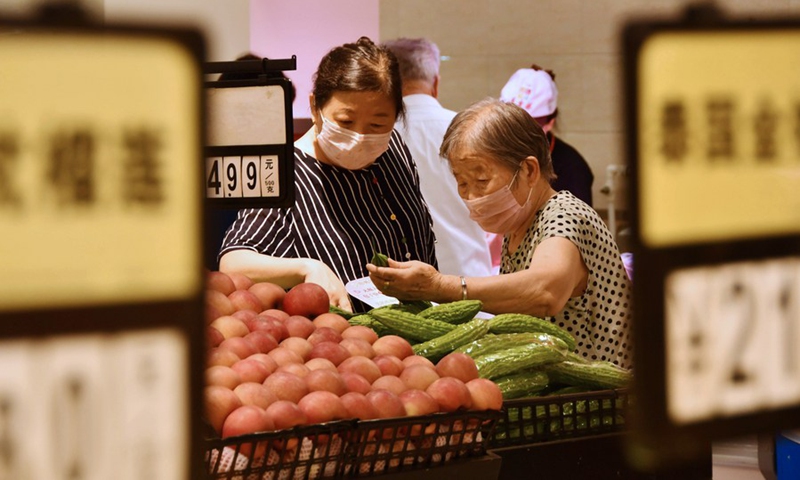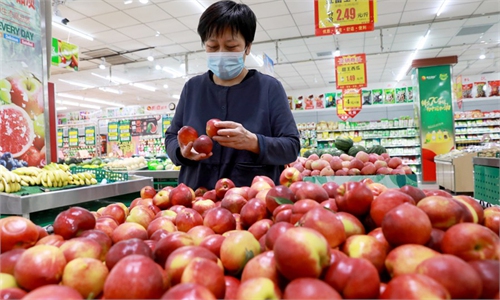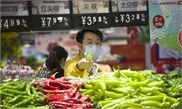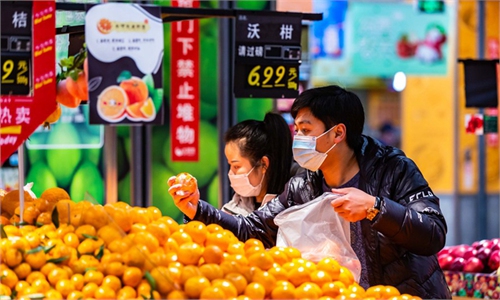
Consumers select vegetables at a supermarket in Handan City, North China's Hebei Province. File photo: Xinhua
China's producer price index (PPI) rose 9.0 percent year-on-year in July, up 0.2 percentage points from June, while the consumer price index (CPI) rose 1.0 percent year-on-year, edging down 0.1 percentage points from the previous month, official data showed on Monday.Market supply and demand remained steady in July, thanks to the government's success in controlling the spread of COVID-19, the fight against floods, and sustained economic development, and ensuring policy settings that support supply chain stability, said Dong Lijuan, a senior statistician with the National Bureau of Statistics (NBS).
In July, food prices declined 3.7 percent year-on-year. Pork prices fell 43.5 percent year-on-year for the month, while the prices of eggs and edible oil were up 18.3 percent and 9.5 percent respectively, according to the NBS.
Non-food prices rose 2.1 percent year-on-year in July, up 0.4 percentage points from the previous month, driving up the CPI by about 1.7 percentage points, NBS data showed. In the past month, the cost of airfare, gasoline and diesel rose by 53.5 percent, 25.4 percent and 28.2 percent year-on-year, respectively.
Affected by price hikes for crude oil, coal and other products, China's PPI inched up by a slight 0.2 percentage points compared with June.
According to the NBS, eight major industries - including ferrous metals mining, petroleum and natural gas exploration, and coal mining and processing - in addition to chemical raw materials and manufacturing, drove up the PPI by 7.5 percentage points, more than 80 percent of the overall growth rate.
Tian Yun, former vice director of the Beijing Economic Operation Association, attributed high factory prices to imported inflation brought about by US' excessively loose monetary policy, as well as the impact of the pandemic on global supply chains which led to soaring shipping rates.
He told the Global Times on Monday that the country's PPI growth may ease to 8 percent during the third quarter and 7 percent during the fourth quarter.
"To relieve the problem, market speculation needs to be curbed, while the authorities should actively intervene to identify issues across supply chains."
Dong Dengxin, director of the Finance and Securities Institute at Wuhan University of Science and Technology, told the Global Times that the high PPI will increase the cost of downstream enterprises and eventually affect consumer goods, putting pressure on domestic consumption.
"Given mounting pressures caused by the latest coronavirus flare-up and a higher base last year, the country's GDP growth could edge down to range between 5-6 percent for the second half of 2021" Dong projected, urging more measures to spur consumption and easier monetary and fiscal policies.



